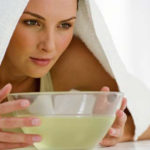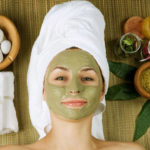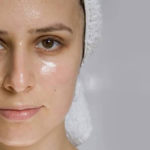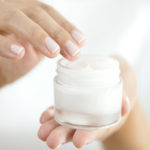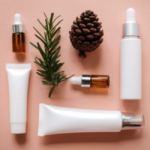Causes of Oily Skin:
– Hormonal factors: Excessive production of hormones leads to uncontrolled oil secretion on the skin, resulting in a greasy appearance. This condition often occurs in people going through puberty, pregnant women, and those with menstrual cycles… The high concentration of androgen in hormones increases the activity of sebaceous glands.
– Stress: When stressed, hormones can increase and activate the sebaceous glands to produce more oil.
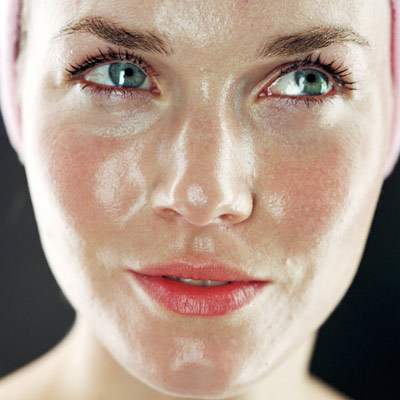
– Weather and environment: Hot climate and high humidity areas will stimulate increased oil secretion to protect the skin. At the same time, the environment with a lot of smoke and dust can clog the pores and activate the oil and sebum production along with dirt..
– Improper skincare: Many people skip moisturizing steps because they think it will make their skin even oilier. If not properly moisturized, the amount of oil secretion on the skin will increase. People with oily skin often think they need to use strong cleansing products to remove excess oil on the skin. If used regularly, the skin will increase sebum production to provide moisture, making the skin appear even oilier.
How to take care of oily skin?
– Facial hygiene: Proper makeup removal and facial cleansing will help the pores breathe better, reduce greasiness, and prevent the appearance of different types of acne.
Use a gentle cleanser specifically designed for oily skin. Avoid high pH cleansers. Do not use cold or hot water, and only wash your face up to 3 times a day. Use moisturizing water to deeply cleanse, tighten the pores, and balance the pH for acne-prone skin. Exfoliate 2-3 times a week.
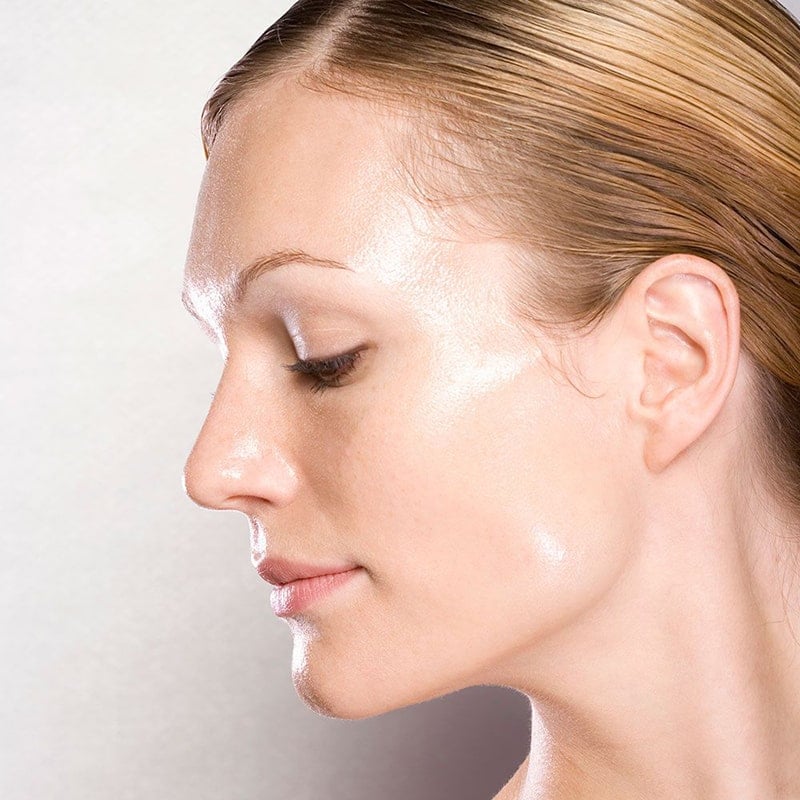
– Diet: Maintain a proper diet, stay away from food that is harmful to the skin such as fried food, fast food… Eat plenty of vitamin A-rich foods such as sweet potatoes, carrots, curly kale, spinach, bell peppers. Maintain the habit of drinking 2 liters of water per day.
– Use oil blotting paper: Only use it 2-3 times a day because excessive use of oil blotting paper can dry out the skin and cause irritation. Moreover, the skin may increase oil secretion to balance the skin more than before.
– Moisturize the skin: Choose water-based moisturizers that are oil-free to avoid a greasy appearance. Use light moisturizers that contain hyaluronic acid and natural extracts with non-allergenic formulas that do not clog pores.
- Skipping moisturizing: Many people with oily skin avoid moisturizing, believing it will make their skin oilier. However, this can lead to dehydrated skin, which stimulates excess oil production to compensate.
- Over-cleansing: Using strong cleansing products or cleansing too frequently can strip the skin of its natural oils. This can signal the skin to produce more oil to maintain balance, resulting in an even oilier appearance.
- Facial hygiene: Proper makeup removal and gentle cleansing with products designed for oily skin will help reduce grease and prevent acne. Exfoliate 2-3 times a week to remove built-up oil and dead skin cells.
- Diet: Maintain a healthy diet, avoiding fried and fast food. Include foods rich in vitamin A and drink plenty of water to support skin health.
- Use oil blotting paper: Blot excess oil 2-3 times a day to help control shine without drying out the skin.
- Moisturize: Choose oil-free, water-based moisturizers with hyaluronic acid and natural extracts to hydrate the skin without adding grease.

























